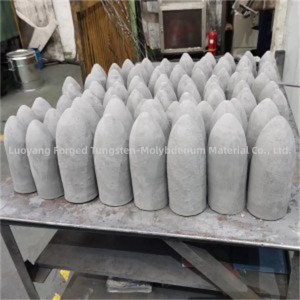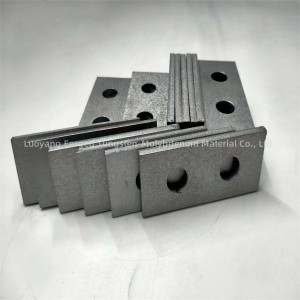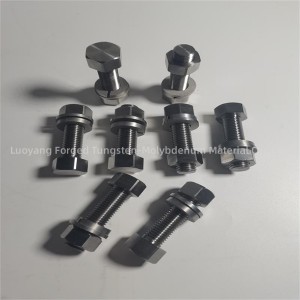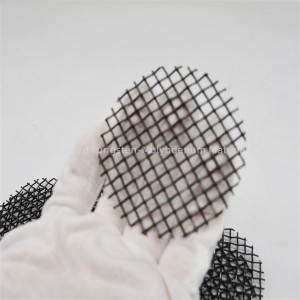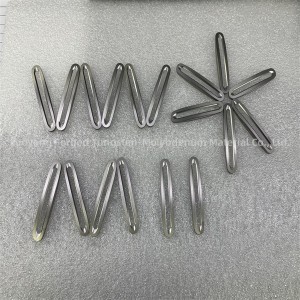Molybdenum alloy (TZM) Piercing Mandrel
The production method of perforated mandrels from molybdenum alloys (such as TZM) typically involves several key stages:
Material selection: First choose high-quality molybdenum alloy materials, such as TZM, which is a composite material of molybdenum, titanium, zirconium and carbon. TZM has excellent high-temperature strength, good thermal conductivity, wear resistance and deformation resistance, making it an ideal material for punching mandrels. Mechanical processing and forming: Using advanced machining technology and equipment, the molybdenum alloy material is formed into the required shape of the punching mandrel. This may involve turning, milling, grinding or other precision machining processes to obtain the required dimensions and surface finish. Heat Treatment: TZM can undergo a heat treatment process to improve its mechanical properties, dimensional stability and overall performance at high temperatures. This may involve controlled heating and cooling cycles to achieve the desired material properties. Surface Treatment: Apply a surface treatment or coating to enhance the wear resistance, surface hardness and overall durability of the pierced mandrel. This may include processes such as chemical vapor deposition (CVD) or physical vapor deposition (PVD) to form a protective coating. Quality Control: Strict quality control measures are implemented throughout the production process to ensure that the molybdenum alloy punched mandrels meet precise tolerances, dimensional accuracy and performance requirements. Final Inspection and Testing: A thorough inspection and testing program is conducted to verify the integrity and performance of the finished piercing mandrel. This may include dimensional measurements, surface analysis and performance testing under simulated operating conditions. The production of molybdenum alloy piercing mandrels requires careful attention to material selection, precision machining, heat treatment and quality assurance to ensure the final tool meets the demanding requirements of metal piercing and forming applications.
Molybdenum crucibles are widely used in high temperature applications, especially in industries such as metallurgy, glass manufacturing and material sintering. Here are some specific uses: Smelting and casting: Molybdenum crucibles are often used to smelt and cast high-temperature metals and alloys such as gold, silver, and platinum. Molybdenum's high melting point and excellent thermal conductivity make it an ideal material for withstanding the extreme temperatures involved in the metal melting process. Sintering: Molybdenum crucibles are used for sintering of ceramic and metal powders, where high temperatures are required to achieve densification and grain growth. Molybdenum’s inertness and its ability to withstand high temperatures without reacting with the material being processed make it a suitable choice for sintering applications. Glass manufacturing: Molybdenum crucibles are used in the production of specialty glasses and glass ceramics. Molybdenum’s high thermal stability and inertness ensure that it does not contaminate the material being melted, making it an important component of the glass-making process. Semiconductor production: In the semiconductor industry, molybdenum crucibles are used for the growth and processing of single crystals, such as silicon and other semiconductor materials. High purity and resistance to chemical reactivity make molybdenum ideal for these applications. Overall, molybdenum crucibles are valued for their high temperature resistance, chemical inertness, and durability, which makes them vital in a variety of industrial and scientific processes involving extremely hot and reactive materials.
Wechat:15138768150
WhatsApp: +86 15236256690
E-mail : jiajia@forgedmoly.com






